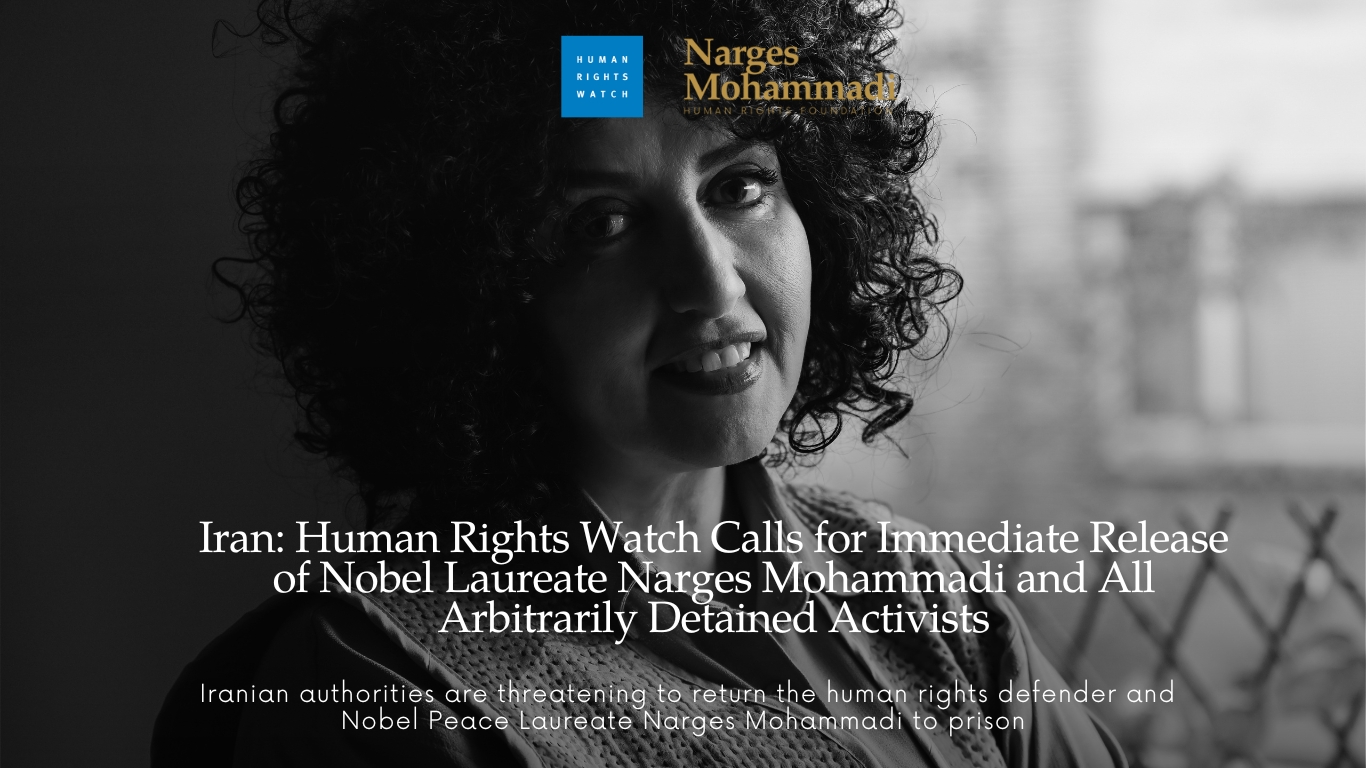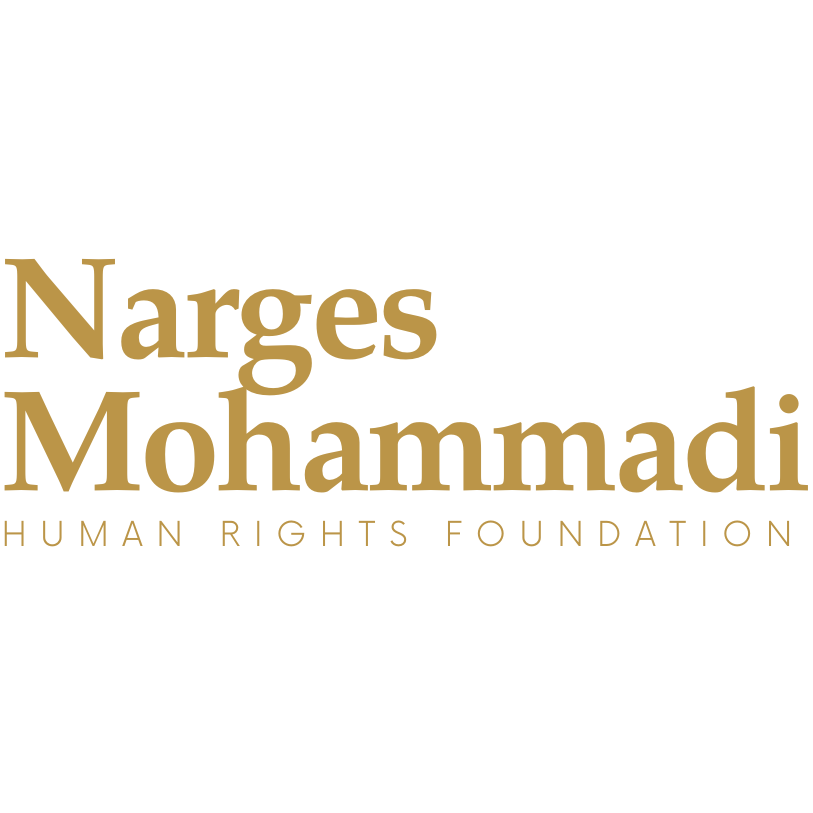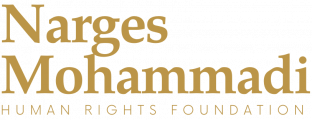
Iran: Human Rights Watch Calls for Immediate Release of Nobel Laureate Narges Mohammadi and All Arbitrarily Detained Activists
(Beirut) 31 March 2025 – Iranian authorities are threatening to return the human rights defender and Nobel Peace Laureate Narges Mohammadi to prison to serve the remainder of her unjust sentence as a means to pressure her to cease her rights advocacy, Human Rights Watch said today. The authorities should immediately end their ongoing harassment and unconditionally release her and everyone else arbitrarily detained for their human rights activism.
“The international community needs to hold them to account for their blatant disregard not just for the right to liberty but also the right to life of people in their custody.” Federico Borello
Narges Mohammadi is serving a 13-year and nine-month sentence on charges that stem from her human rights work. She was released from Evin prison on December 4, 2024, after authorities suspended her prison sentence for 21 days. She is currently undergoing medical treatment for various health conditions and her temporary release came after months of denial of medical care. In November 2024, the authorities, contrary to medical advice, had returned Mohammadi to prison following surgery to remove a bone lesion from her leg that was suspected of being cancerous.
“Narges Mohammadi has used this brief respite from prison to continue her activism and shed light on the dire human rights situation in Iran. Iranian authorities’ threat to return her to prison is a stark reminder of their zero tolerance for dissent,” said Federico Borello, interim executive director at Human Rights Watch. “Iran’s authorities have a legal obligation to unconditionally release Nobel Laureate Narges Mohammadi and all others arbitrarily detained and to ensure that everyone in their custody has access to timely and adequate medical care.”
Earlier in March 2025, Mohammadi met virtually with Borello, interim executive director at Human Rights Watch, to discuss the human rights situation in Iran. She drew attention to the human rights crisis in the country, in particular the shocking escalation of authorities’ use of the death penalty and the continued repression of human rights defenders. She described the treatment of political prisoners, including the authorities’ practice of denying them medical care, and torture and ill-treatment, including prolonged solitary confinement to extract forced confessions. She highlighted the importance of maintaining international scrutiny on the authorities’ dismal rights record.
For months prior to her temporary release, Mohammadi had been suffering from various health conditions, including heart disease, acute back and knee pain, and a herniated spinal disk. The authorities denied her adequate medical care despite repeated calls.
Mohammadi refused to return to Evin prison on December 25, 2024, when the temporary suspension ended. On December 28, her lawyer submitted a request to the Legal Medicine Organization, under Iran’s judiciary, to extend the suspension, in line with medical advice. According to information received by Human Rights Watch, the Legal Medicine Organization has approved her request, but the authorities have nonetheless pressured her to return to prison. Mohammadi’s doctors have said she needs at least six months outside prison to ensure she has access to thorough and regular medical examinations and care.
The Iranian authorities have a long-standing policy of denying prisoners, in particular those arbitrarily detained on politically motivated national security charges, adequate and timely access to medical care, in an attempt to punish and silence them. Scores of political prisoners continue to be denied timely and adequate medical care, such as specialized treatment in hospitals. They include Zeynab Jalalian, a Kurdish political prisoner sentenced to life in prison; Fatemeh Sepehri, an outspoken critic of the supreme leader sentenced to 18 years in prison; Raheleh Rahemi-Pour, a 72-year-old civil rights activist; Warisha Moradi, a Kurdish activist sentenced to death; and Motaleb Ahmadian, a Kurdish political prisoner. Mahvash Sabet, a former member of the leadership of the Baha’i community in Iran, who is currently on medical leave, was long denied medical care and remains at risk of being returned to prison.
Under the United Nations Standard Minimum Rules for the Treatment of Prisoners, sick prisoners who require specialist treatment should be transferred to specialized institutions or to civil hospitals. Denial of medical care to those detained may amount to torture and other ill-treatment, which is absolutely prohibited under international law. As documented by Amnesty International, in some cases, prisoners denied needed medical care have died in custody, which constitute arbitrary deprivation of life.
“Iranian authorities’ abhorrent policy of denying medical care to detainees and prisoners can have lethal consequences,” Borello said. “The international community needs to hold them to account for their blatant disregard not just for the right to liberty but also the right to life of people in their custody.”
دیدهبان حقوق بشر خواهان آزادی بی قید و شرط نرگس محمدی برنده جایزه نوبل صلح و تمامی فعالان حقوق بشر زندانی در ایران شد.
۱۱ فروردین ۱۴۰۴
«جامعه بینالمللی باید مقامات ایران را بابت بیاعتنایی آشکارشان نهتنها به حق آزادی، بلکه به حق حیات افراد تحت بازداشت، پاسخگو بداند.»
سازمان دیدهبان حقوق بشر با اشاره به تهدید مقامات ایران برای بازگرداندن نرگس محمدی به زندان، هشدار داد که حکومت ایران باید آزار و اذیت مداوم برای وادار کردن او به گذراندن باقیمانده محکومیت ناعادلانهاش را متوقف کند و این برنده نوبل صلح بدون قید و شرط آزاد گردد
این سازمان همچنین خواهان آزادی سایر کسانی که «خودسرانه و به دلیل فعالیتهای حقوق بشری بازداشت شدهاند» شد.
دستگاه قضایی جمهوری اسلامی طی سه سال اخیر بارها پروندههای جدیدی علیه نرگس محمدی تشکیل داده است.
نرگس محمدی که به ۱۳ سال و ۹ ماه زندان محکوم شده، از ۱۴ آذر ۱۴۰۳ با تعلیق ۲۱ روزه حکم زندان آزاد شده و تحت درمان پزشکی قرار دارد. پیش از آن، ماهها از دسترسی او به درمان پزشکی جلوگیری شده بود. پزشکان گفتهاند که او برای درمان مناسب دستکم شش ماه باید خارج از زندان باشد، اما با وجود تایید سازمان پزشکی قانونی برای تمدید تعلیق، فشارها برای بازگشتش به زندان ادامه دارد.
فدریکو بورِلّو، سرپرست دیدهبان حقوق بشر، در بیانیه این سازمان تصریح کرد: «نرگس محمدی از این مرخصی كوتاه بیرون از زندان برای ادامه فعالیت خود و روشن کردن وضعیت وخیم حقوق بشر در ایران استفاده کرده است.»
او افزود: «تهدید مقامات ایرانی برای بازگرداندن او به زندان، نشانهای آشکار از سیاست عدم تحمل کوچکترین اعتراض از سوی آنان است. آنها موظفاند نرگس محمدی، و تمامی افراد بازداشتشده خودسرانه را بیقید و شرط آزاد کنند و اطمینان دهند که همه زندانیان به مراقبت پزشکی مناسب و بهموقع دسترسی دارند.»
در مارس ۲۰۲۵، محمدی بهصورت مجازی با بورلو، مدیر اجرایی دیدهبان حقوق بشر، دیدار کرد و درباره وضعیت حقوق بشر در ایران گفتوگو داشت. او به بحران حقوق بشر در کشور، بهویژه افزایش تکاندهنده استفاده از مجازات اعدام و سرکوب مستمر مدافعان حقوق بشر اشاره کرد. محمدی همچنین درباره رفتار مقامات با زندانیان سیاسی، از جمله محرومیت از خدمات درمانی، شکنجه، بدرفتاری و حبس طولانیمدت در سلول انفرادی برای گرفتن اعترافات اجباری، توضیح داد. او بر اهمیت نظارت بینالمللی بر کارنامه اسفبار حقوق بشری مقامات ایران تاکید کرد.
محمدی ماهها پیش از آزادی موقت خود از مشکلات متعددی از جمله بیماری قلبی، درد شدید کمر و زانو، و دیسک حاد ستون فقرات رنج میبرد، اما مقامات علیرغم درخواستهای مکرر، او را از دریافت درمان مناسب محروم کردند.
محمدی در ۴ دی ۱۴۰۳ زمانی که دوره تعلیق موقت پایان یافت، از بازگشت به زندان اوین خودداری کرد. در ۷ دی ۱۴۰۳ وکیل او درخواستی را به سازمان پزشکی قانونی، زیر نظر قوه قضاییه ایران، برای تمدید این تعلیق مطابق با توصیههای پزشکی ارائه داد. به گفته دیدهبان حقوق بشر، سازمان پزشکی قانونی این درخواست را تایید کرده، اما مقامات همچنان او را برای بازگشت به زندان تحت فشار قرار دادهاند. پزشکان محمدی اعلام کردهاند که او برای دریافت معاینات و مراقبتهای پزشکی منظم و کامل، حداقل به شش ماه بیشتر زمان خارج از زندان نیاز دارد
مقامات ایرانی سیاستی دیرینه در محروم کردن زندانیان، بهویژه کسانی که بهطور خودسرانه و با انگیزههای سیاسی تحت اتهامات امنیت ملی بازداشت شدهاند، از دسترسی کافی و بهموقع به خدمات درمانی دارند. این اقدام با هدف مجازات و ساکت کردن آنها صورت میگیرد. دهها زندانی سیاسی همچنان از دریافت مراقبتهای پزشکی مناسب و بهموقع، از جمله درمانهای تخصصی در بیمارستان، محروم هستند. از جمله این زندانیان میتوان به زینب جلالیان، زندانی سیاسی کرد که به حبس ابد محکوم شده است؛ فاطمه سپهری، منتقد صریح رهبر جمهوری اسلامی که به ۱۸ سال زندان محکوم شده است؛ راحله راحمیپور، فعال حقوق مدنی ۷۲ ساله؛ وریشا مرادی، فعال کرد محکوم به اعدام؛ و مطالب احمدیان، زندانی سیاسی کرد، اشاره کرد. همچنین مهوش ثابت، یکی از اعضای پیشین رهبری جامعه بهاییان ایران، که در حال حاضر در مرخصی پزشکی به سر میبرد، مدتها از دریافت مراقبتهای پزشکی محروم بوده و همچنان در معرض خطر بازگشت به زندان قرار دارد
بر اساس قوانین حداقل استاندارد سازمان ملل برای رفتار با زندانیان، زندانیان بیمار که نیاز به درمان تخصصی دارند باید به مؤسسات تخصصی یا بیمارستانهای غیرنظامی منتقل شوند. محرومیت از مراقبتهای پزشکی برای افراد بازداشتشده میتواند مصداق شکنجه و سایر اشکال بدرفتاری باشد که طبق قوانین بینالمللی بهطور مطلق ممنوع است. بهگفته عفو بینالملل، در برخی موارد، زندانیانی که از دریافت درمان ضروری محروم شدهاند، در بازداشت جان خود را از دست دادهاند که این امر مصداق سلب خودسرانه حق حیات است.
فدریکو بورلو گفت: «سیاست وحشیانه مقامات ایرانی در محروم کردن زندانیان از خدمات درمانی میتواند عواقب مرگبار داشته باشد.» او افزود: «جامعه بینالمللی باید مقامات ایران را بابت بیاعتنایی آشکارشان نهتنها به حق آزادی، بلکه به حق حیات افراد تحت بازداشت، پاسخگو بداند.


